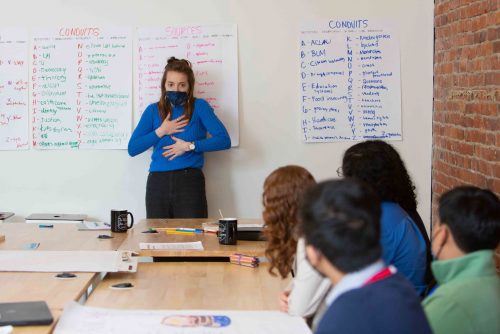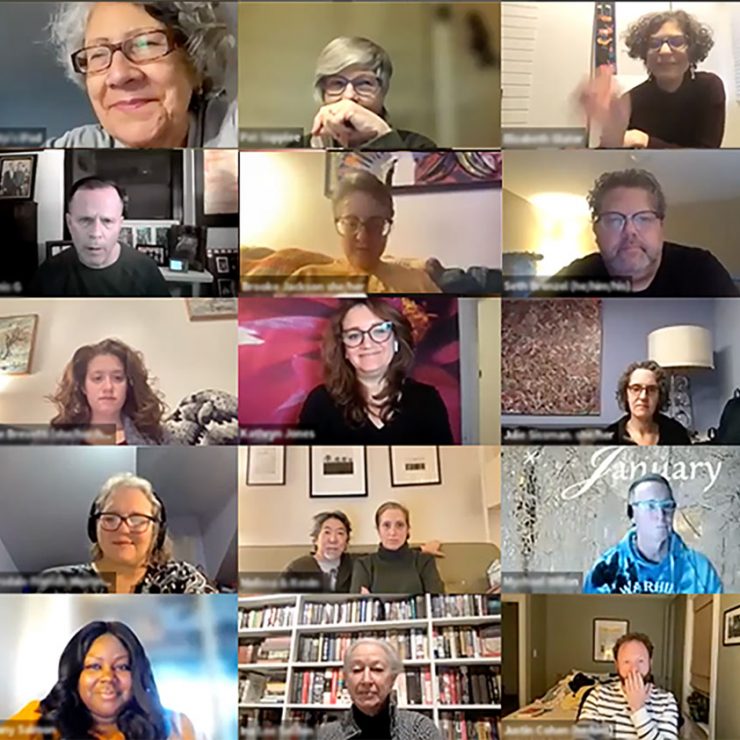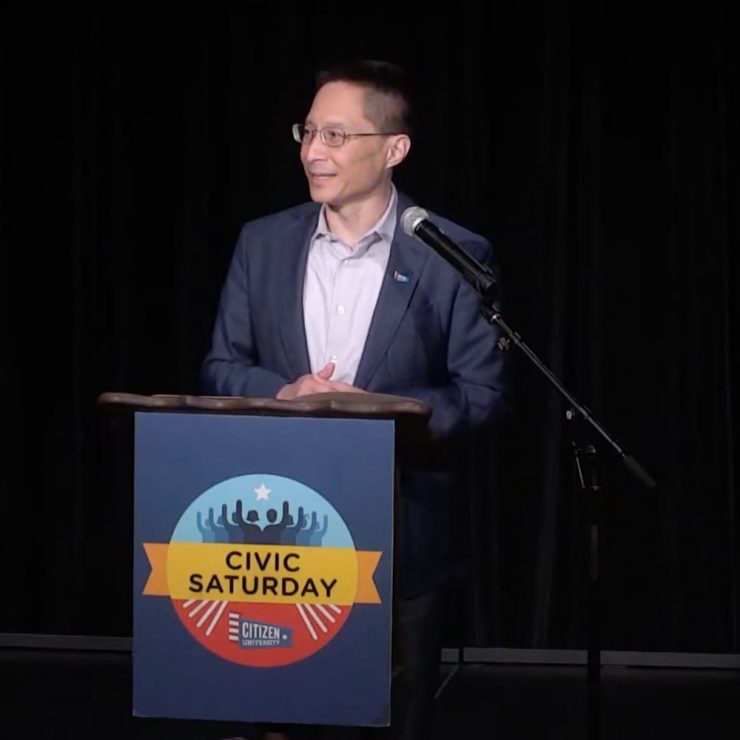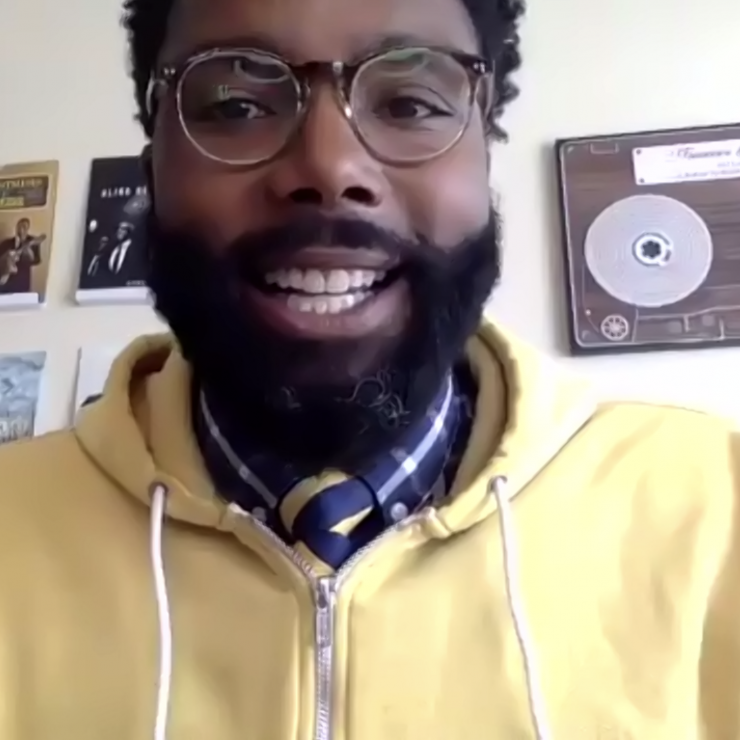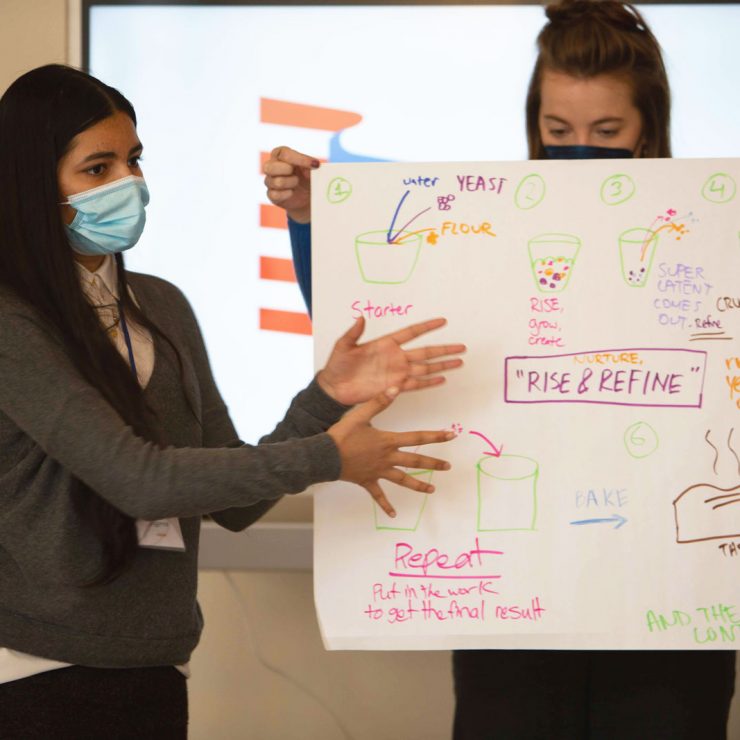Do you ever find yourself stuck in your head about how to be a good citizen? A good neighbor, an effective advocate? The type of citizen that uses their power for good and does the “right” thing?
It may sound something like this. I really should understand what my city council does. Or, if only I read more, then I’ll feel ready to get involved. Or, the system is rigged against me, why even try?
It’s tempting to define being ‘civically engaged’ by what we know or how we act. Our knowledge and our actions are important, but they don’t tell the whole story. What happens when we reframe citizenship as how we feel? Being an active citizen requires us to name and consider the challenges we’re facing, both practically and emotionally.
Here at Citizen University, we believe that citizen-ing is a verb (just like our friend Baratunde). It’s a practice driven from the heart.
We can find meaningful ways to live like a citizen when we pay close attention to what’s making our hearts ache — and what’s making us feel hopeful.
This orientation loosens us from feelings of obligation or guilt. It creates space for wonder, grief, curiosity, vulnerability, and complexity.
We help teenagers develop heart-driven citizenship in our Youth Collaboratory. We connect high schoolers to one another as they explore their identities as citizens — regardless of their documentation status. They grapple with what it means to be of service, to find sustainable ways to show up (and to grow up) with civic character.
And wow do they have a lot to grapple with right now. They’re thinking about getting that paper in by midnight, distracted by chemistry grades, and worrying about climate disasters, the roots of polarization, and global conflicts. So what’s keeping them going? Our current Youth Collab cohort mentioned things like learning about new places and ideas. Focusing on the areas they can really make an impact. Knowing they have each other to lean on. Turns out, despite it all, they’re navigating today’s civic challenges with hearts full of love.
Here are three ways you, too, can approach citizen-ing with love.
1. Embrace pain and hardship as your guide.
“We need pain to alert us to what needs attention,” says Joanna Macy in the video below. When we have the courage to speak our despair and embrace the world’s suffering, we become attuned to what needs healing, support, and action.
Think about the times you’ve compartmentalized your own feelings, keeping yourself sheltered from other people’s pain and problems. That numbness keeps us aloof and distant. What might be possible when we’re not afraid to embrace pain? When we hold our personal pain courageously alongside the pain of others and the collective, we can transform it into something that unites and empowers us.
Want to learn more about what Joanna Macy and Gandhi have in common? Check out this workshop from the Buddhist Peace Fellowship and hear from leaders across the country about how they transform pain into action across a spectrum of critical citizen roles.
2. Find your purpose in the space between pain and joy.
It’s useful to find the intersection between these two feelings, shares Zoey Cane Belyea, our Youth Collaboratory program manager. She joined The Round Table, a podcast by our friends at Next Generation Politics.
“The questions I’m sitting with now are: What is breaking your heart? What are you carrying with you that’s really heavy? This is another way of asking, what are the issues you care about? But then also the companion question to that is, what is bringing you joy? Can you find an action that lives in the space between those two questions?
How can you use the things that you already find joyful, that you already do in community, as the fertile ground for planting the seeds for organizing and activism?
Let’s show up and do the work, but let’s show up and do the play and the party. Let’s expand the ways that we imagine that change could happen.”
3. Remember that joy isn’t optional — it’s crucial.
Community organizer and activist Miracle Jones shares a powerful perspective on joy in this podcast from TED. Allowing ourselves joy buoys us amidst the challenges, tragedy, and grief all around us. Sometimes we have to laugh to keep from crying, she shares as she encourages us to find ways of moving through pain. “Bloom where you are planted,” Miracle advises. “If you’re a singer, sing. If you’re a gardener, tend to the universe and environment where you are. Work with the skillsets you have to make a difference.”
Wisdom like this is central to our work. Our current cohort of highschoolers started their time together with a workshop on grief and healing. It carved out time for them to reflect on the questions Zoey posed: What’s breaking your heart? What’s bringing you joy? They reflected on what binds us — why does it matter that we show up? They committed to following through on what they feel deep in their heart, instead of getting wrapped up in what they feel they “should do.”
Over the year, they’ll develop their own Power Projects to make tangible change wherever they experience community — in the schools, city councils, libraries, and public spaces they call home. (Read how Harmonie built her project around her passion for climate justice.)
Many Citizen University programs invite adults into reflection similarly to the Youth Collaboratory. We invite you to come as your full self, with everything you’re holding. Let’s build bonds of trust and affection so that we can be real about what’s feeling heavy. Let’s commit to building power together, so we don’t have to carry those things alone.
This process takes practice. Making a habit of embracing grief doesn’t happen overnight, let alone activating imagination and intuition as a guide through that grief. But these practices help us build a stronger, more resilient, living culture of powerful, responsible citizenship.
How are you meeting the world with an open heart?
